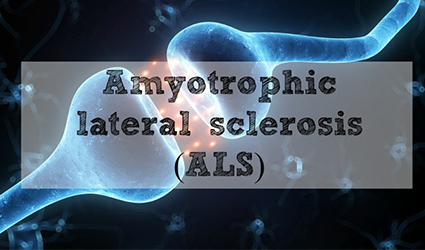Next Generation Drug Could Treat Inherited Form of ALS in Animal Models
August 2, 2018
Source: ScienceDaily
 793
793

New research funded by the NIH found that a second-generation drug, when injected in rodents, deferred signs of amyotrophic lateral sclerosis (ALS).
The findings, published in the Journal of Clinical Investigation, advocate that the newer edition of the drug, deliberated to mute the gene, superoxide dismutase 1 (SOD1), may perhaps treat an inherited variety of the disease resulting due to mutations in SOD1. The drug is being presently tested in an ALS clinical trial (NCT02623699).
ALS is known to destruct motor neurons that activate muscles, leading to rapid loss of muscle strength and patients’ ability to speak, swallow, move, and breathe. Most survive up to 3-5 years after symptoms appear.
A team of researchers headed by Timothy M. Miller, M.D., Ph.D., Washington University, St. Louis, MO, used rats and mice genetically adapted to carry healthy or disease-causing variant of human SOD1, and discovered that recent upgrades of the drug may be more effectual at treating ALS than the previous version that had been tested in a phase 1 clinical trial.
Administration of the newer versions displayed higher efficacy at decreasing normal, human SOD1 mRNA levels in rats and mice and they enabled rats, genetically modified to carry a disease-producing mutation in SOD1, survive longer than older versions of the drug.
Injections of the new drugs also postponed the age at which mice carrying a disease-mutant SOD1 gene had difficulty in balancing on a rotating rod and also showed to prevent muscle weakness and damage of between neuro-muscular junctions, signifying it could solve the muscle activation issues caused by ALS. The collective results created a ground for the current phase 1 clinical trial validating the next generation drug in ALS patients.
By DduRead more on
- Things to Know before Buying Newborn Baby Incubators March 31, 2022
- Highly Resistant Food Poisoning Bug Responds to Antibiotics September 6, 2018
- Smartphone Based Diagnosis to Identify Mosquitoes Transmitting Infection September 5, 2018
- 3 Natural Plant Extracts Manufacturers on Drugdu.com September 4, 2018
- Shenzhen Chuanggan – Health Assessment Facility Supplier September 4, 2018
your submission has already been received.
OK
Subscribe
Please enter a valid Email address!
Submit
The most relevant industry news & insight will be sent to you every two weeks.



